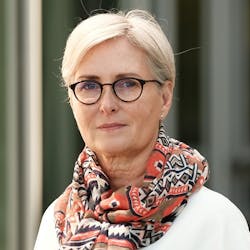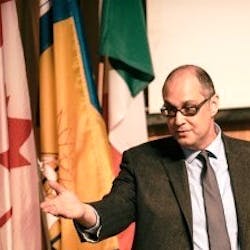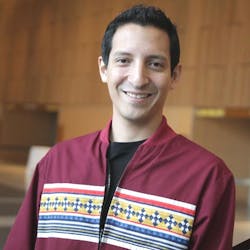Honouring the children: Social action for truth, reconciliation and justice
- Details
- Resources
In 2021 the discovery of mass graves and unmarked burials of hundreds of Indigenous children have been reported in Canada. These mass graves, of which it is anticipated many more will be found, are part of Canada's legacy of colonialism, and in particular the residential school system. The goal of this system, much of which was run by religious institutions, was to "civilize" Indigenous children, and destroy their Indigenous identity. For many generations, Indigenous children were removed from their families, forced into the schools, and subject to widespread abuse, assault and death. Thousands of children never returned home.
The discovery of these mass graves is a long overdue reckoning for Canada. But the fact that Canadians, and many around the world, are shocked by this discovery reveals an important challenge in determining what action we need to take as individuals and groups in response. There is only shock because the predominant historical narratives and discourses of settler colonial societies, including Canada and the United States, rest upon fictions about the lands that make up their countries, the Indigenous peoples who were here before Europeans arrived, and what violent and racist systems were put in place.
Mary Ellen Turpel-Lafond/Akikwe
In her role as senior associate counsel at Woodward and Company, Mary Ellen brings her extensive experience in the field of Aboriginal law to her current practice, which sees her appear at all levels of court on cases relating to land claims, Indigenous and human rights matters, and public law litigation.
She is a tenured full Professor of Law at Peter Allard Hall Law School at UBC and served as a Saskatchewan Provincial Court judge for 20 years.
During her time on the bench, Mary Ellen was actively involved in projects relating to better supports for Indigenous peoples, specifically the unique circumstances and needs of youth involved in the justice system. Ceaselessly advocating for children’s human rights, she later served as BC’s first Representative for Children and Youth (2006-2016), a role that saw her take on case advocacy for more than 17,000 youths and their families- most of whom were Indigenous peoples.
Mary Ellen holds a Doctorate in Law from Harvard Law School (SJD), a master’s in international law from Cambridge University (Gonville and Caius College), a Juris Doctor law degree from York University’s Osgoode Hall, and a Bachelor of Arts degree from Carleton University. She also holds a Certificate in the international and comparative law of human rights from the University of Strasbourg.
Mary Ellen is a member of the Indigenous Bar as well as the Law Societies of BC, Nova Scotia, and Saskatchewan. She’s been awarded for her contributions to the field of Aboriginal law multiple times, including the distinction of Indigenous Peoples’ Counsel from the Indigenous Bar Association in 2006, and honourary degrees from nine Canadian universities and Schools of Law. She is the author of more than 50 published works and reports.
Roshan Danesh
Roshan is a lawyer, conflict resolution innovator, and educator whose areas of work, teaching, and writing include constitutional law, Indigenous rights, international peace-building, and leadership and organizational change. Roshan completed his S.J.D at Harvard Law School and LL.B at the University of Victoria, and has taught at many academic institutions including the University of British Columbia and University of Victoria. For the last 15 years Roshan has worked extensively on advancing Indigenous title and rights and reconciliation, including advising the Union of BC Indian Chiefs, the British Columbia Assembly of First Nations, Indigenous nations across Canada, as well as the federal, provincial, and local governments. From 2017 - 2018 Roshan served as the special counsel on Indigneous reconciliation to the Minister of Justice and Attorney General of Canada Jody Wilson-Raybould. Roshan has also advised governments and organizations around the world, including the United Nations, in the areas of peace-building, human rights, proactive conflict-resolution, organizational management and change, and leadership. Roshan is the author of dozens of publications, including Dimensions of Baha'i Law (2019, Baha'i Publishing Trust).

Jordan Bighorn
Jordan Bighorn is of Lakota heritage, hailing from Fort Peck Assiniboine and Standing Rock Sioux communities. He currently is Co-Director of the Community Education Development Association out of Winnipeg, Manitoba. He is the co-producer of the short film, “The Path Home,” a short film commissioned by the National Spiritual Assembly of the Baha’is of Canada on the completion of the final report of the Truth and Reconciliation Commission, most recently screened at an international conference on peace hosted by the Kroc Institute for International Peace Studies at the University of Notre Dame, in South Bend, Indiana.
45th Annual Conference
In the Footsteps of ʻAbdu’l-Bahá: Contributing to the Discourses of Our Time
The views expressed in this recording are those of the presenters and do not necessarily represent the views of the Association for Bahá’í Studies, nor the authoritative explications of Bahá’í writings.
